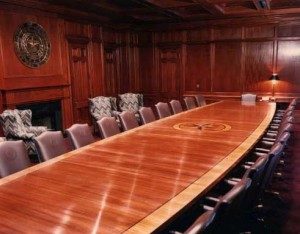 Coming from the field of Private Investigation in Canada, I’m all too familiar with organizational and operational regulation of private enterprise. Legislative bodies have dictated the scope and scale of our investigative powers within Canadian society, but the actual day-to-day operation of the business of Private Investigation had largely been uncontrolled, until the inception of a peer reviewed intra-disciplinary counsel, which included both business owners and investigators alike.
Coming from the field of Private Investigation in Canada, I’m all too familiar with organizational and operational regulation of private enterprise. Legislative bodies have dictated the scope and scale of our investigative powers within Canadian society, but the actual day-to-day operation of the business of Private Investigation had largely been uncontrolled, until the inception of a peer reviewed intra-disciplinary counsel, which included both business owners and investigators alike.
Membership in this professional counsel brought with it some clear benefits, access to valuable and otherwise restricted information, industry recognised training, various retail discounts, and of course, alliance with the unified voice of the industry in the face of further legislation which was not in the best interest of the industry stake holders.
The obvious similarities between Private Investigation and Paranormal Investigation notwithstanding, there may be cause to consider the creation of such an authoritative body within the paranormal field of interest, altogether academically, professionally and operationally.
From a position of interest and experience, it seems that there should be certain gravitation within the field toward some form of self regulation. To maintain a census of the industry, to monitor complaint and access the benefit of controlled group discussion; in large part these things are slowly falling into place on their own through social media such as Twitter, Facebook and MySpace, but it may be time for a more organised effort.
Such self-regulation might take the form of a professional counsel or society, marketed in such a way as to make membership more attractive than non-membership, but also to impose certain restrictions on the membership as a whole.
Some of those restrictions might be:
1) Codes of Conduct; which might include restrictions on profit vs. non-profit operation, standards of evidence and presentation, and even regulatory guidelines for carrying out a complete investigation.
2) Certification requirements; which might impose educational requirements on investigative groups, distinguishing the hobbyist from the professional.
3) An Ombudsman; which would handle the difficult task of managing complaints, the nature of which might be anything from breaches of the code of conduct, to disagreements in findings, and even to defining terms and procedures for the collection of evidence.
4) Delineating Communication Standards; i.e. providing education and guidelines for every aspect of communication within the paranormal field, from phenomenon reporting, to investigative notes, to commercial marketing, to peer-reviewed white papers and web presentation. (An effort to reduce the exorbitant amount of misinformation that is widely available on every subject associated with the paranormal)
The benefits to the field would be innumerable, though this examination would be less than fair if we did not look at the potential drawbacks of such governance.
What immediately comes to mind is the enormous potential for such an organization to stifle the creativity and ingenuity of those who currently populate the paranormal investigation field. Some of the less traditionally minded personalities of the field might see the imposition of self-governance as a control mechanism, which could lead them away from the field. One wonders if this is a drawback or a benefit however.
We could also imagine a build-up of bureaucratic red-tap within the field of study, turning the entire sector of interest into a political machine, rather than an academic pursuit.
What we see through the evolution of the paranormal investigation culture is that there is a growing power struggle. Almost inorganically the pressures within this group of people push toward governance and to freedom of expression at the same time, and while these may seem like opposing positions, the institution of a professional society of governance over paranormal investigation could serve to relieve that pressure through directed discussion, authority and regulation.
Of the many things such a regulatory body could be, any one entity in this field should be dedicated to preserving the right that every individual is entitled to their opinion. Governance and regulation should not be considered dictation, nor should they ever be made to disguise political agenda or coercion; rules should not inhibit a passion for the truth, and certification should not value academia over common intelligence and field experience.
There is a very slippery slope awaiting us on the other side of this hill we’re climbing, be sure that this hill is long and steep, but if we can climb as a group, offering a hand up and a foothold to those around us, and ultimately ensure that there’s room for everyone at the top, we should be able to elevate the entire lot of paranormal enthusiast to a higher level of understanding and achievement.
